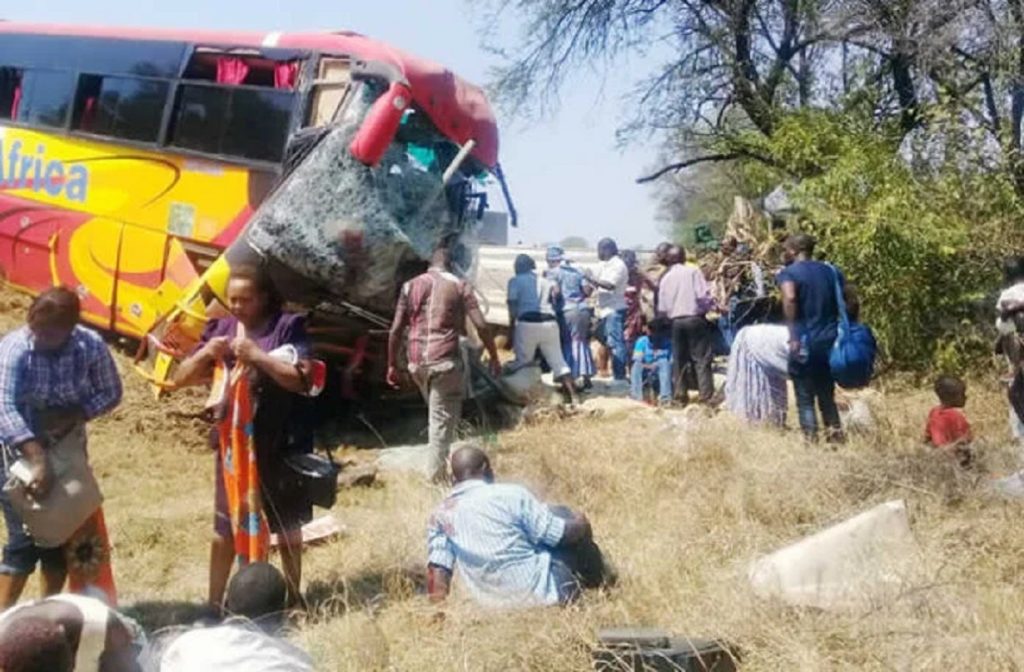The tragic death of Headman Muchibwa-Nyajena, also known as Maduveko Manyise, in a bus accident has raised numerous questions and sparked speculation within the community of Masvingo.
While the official narrative points to a horrific traffic incident, the circumstances surrounding his death have led many to consider the broader implications of traditional leadership in Zimbabwe, particularly in light of recent political tensions.
The Accident: A Closer Look
Manyise, who was recently installed as headman, died when an InterAfrica bus collided with a stationary truck along the Harare-Bulawayo Highway.
While initial reports suggest a straightforward accident, the suddenness of his death—just months after assuming leadership—has led some to question whether foul play might be involved.
Given the historical context of traditional leaders facing threats and violence, these suspicions are not unfounded.
Traditional Leadership and Political Dynamics
In Zimbabwe, traditional leaders like headmen often navigate a complex landscape where their roles can be influenced by political affiliations.
Manyise’s position as headman could have made him a target for those who oppose his leadership or seek to undermine the authority of traditional structures.
The intertwining of politics and traditional leadership raises concerns about the safety and security of individuals in such positions.
As noted in various reports, traditional leaders have historically been accused of partisanship and aligning with specific political parties, particularly the ruling ZANU-PF.
This alignment can create tensions within communities, especially when leaders are perceived as serving political interests rather than their constituents.
The Zimbabwe Human Rights Commission has highlighted irregularities in elections involving traditional leaders, suggesting that their involvement often compromises their neutrality.
Community Reactions and Speculation
Following Manyise’s death, community members have expressed their sorrow but also voiced concerns about the implications of losing a leader so soon after his installation.
Manyise was known for his problem-solving skills and community engagement; thus, his sudden absence leaves a significant void.
Speculation about potential foul play reflects deeper anxieties about the safety of traditional leaders in a politically charged environment.
Moreover, some community members are questioning whether Manyise’s death could be linked to rivalries or conflicts over leadership.
Traditional leadership positions often attract admiration but can also incite jealousy and competition among those vying for power or influence within the community.
The Role of Spiritual Guidance
In light of these concerns, many traditional leaders in Zimbabwe consult sangomas (traditional healers) for protection against perceived threats.
This practice underscores the belief that traditional leaders may face dangers not only from political rivals but also from spiritual forces.
The need for spiritual guidance reflects a broader cultural context where traditional beliefs intersect with contemporary governance issues.
A Call for Investigation
The death of Headman Muchibwa-Nyajena has prompted calls for a thorough investigation into the circumstances surrounding the accident and any potential underlying motives.
As Masvingo grapples with this loss, it is crucial for authorities to address not only the immediate concerns related to road safety but also the broader implications for traditional leadership in Zimbabwe.
The intersection of politics, tradition, and community dynamics highlights the need for greater awareness and protection for those in positions of authority.
As speculation continues to swirl around Manyise’s untimely death, it serves as a reminder of the complexities faced by traditional leaders in navigating their roles within an evolving political landscape.
Source: My Zimbabwe News
